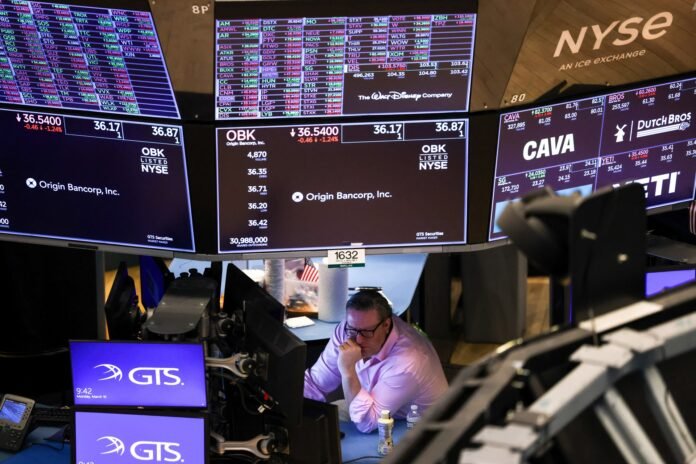U.S. stocks dropped sharply after President Trump escalated trade tensions with China. The announcement of additional tariffs and export controls sent markets into turmoil. Moreover, Big Tech shares, including Nvidia, Tesla, Amazon, and AMD, all fell more than 2% after the bell.
Earlier, Trump warned that he might impose a “massive” tariff increase on Chinese imports. He also indicated he would skip a planned meeting with China’s President Xi Jinping. Consequently, investors reacted with heightened caution, fearing further market disruption.
The S&P 500 and Nasdaq both posted their largest single-day percentage declines since April. Every week, the S&P 500 recorded its biggest drop since May, while the Nasdaq’s weekly decline matched its steepest loss in months.
Ryan Detrick, chief market strategist at Carson Group, said, “The second-largest economy and the first-largest economy are in conflict, which fuels extreme volatility.” He added that Trump’s sudden announcement triggered widespread uncertainty and rapid sell-offs.
The Dow Jones Industrial Average fell 878 points, or 1.9%, while the S&P 500 lost 182 points, or 2.7%. The Nasdaq Composite dropped 820 points, or 3.6%. Meanwhile, the Philadelphia Semiconductor Index fell 6.3% following the announcement.
China produces over 90% of the world’s processed rare earths and magnets, which are crucial for electric vehicles, aircraft engines, and defense technology. As a result, an escalating trade war could disrupt supply chains, particularly for the technology and automotive industries.
U.S.-listed shares of Chinese companies also declined sharply. Alibaba, JD.com, and PDD Holdings fell between 5.3% and 8.5%. Additionally, Qualcomm dropped 7.3% after China launched an antitrust probe into its recent acquisition.
Investors remain cautious amid a U.S. government shutdown, which delays official economic data releases. Meanwhile, preliminary consumer sentiment remains near historic lows due to high prices and uncertain job prospects.
Federal Reserve officials continue to monitor the economy. Fed Governor Christopher Waller urged caution before cutting interest rates, while St. Louis Fed President Alberto Musalem noted that rate reductions might be needed as insurance.
Declining stocks outnumbered advancers by more than 4-to-1 on both the NYSE and Nasdaq. Trading volume reached 24.26 billion shares, above the 20-day average. Analysts expect third-quarter earnings growth of roughly 8.8% year-on-year for the S&P 500.
Overall, U.S. stocks faced intense selling pressure as trade tensions with China and domestic uncertainty heightened market risk. Investors must brace for continued volatility.
For more business updates, visit DC Brief.


